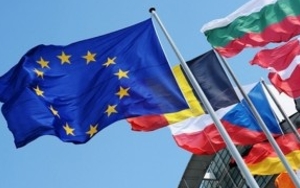According to the European Commission winter economic forecast released on 4 February, the Bulgaria economy will grow by 1.5 % this year and 2 % in 2017.
Bulgaria's GDP is estimated to have grown by 2.2 % last year supported by higher net exports and public investment.
The growth in 2015 was driven mainly by exports and dropping oil prices, while the boost from factors such as the absorption of EU funds is expected to weaken this year.
However, the GDP growth is set to recover in 2017 as domestic demand is expected to increase and gradually replace net exports as the main driver of economic growth.
Private consumption in Bulgaria was suppressed in 2015 due to limited wage growth and less expansionary fiscal stance, but it is expected to gradually grow from 0.7 % in 2015 to 1.4 % this year and further to 1.7 % next year.
Public investment is projected to drop in 2016 due to slowdown of the implementation of projects co-funded by the EU, but is expected to resume its growth in 2017.
Deflation is expected throughout most of 2016, with inflation returning in the last quarter of this year and rising to 0.9 % in 2017.
The country's general government deficit is projected to gradually decrease from 2.5 % in 2015 to 2.3 % this year and further to 2 % of GDP next year.
This will be largely due to higher revenues from taxes thanks to improved tax administration, increase in excise duties and social security contributions.
Exports are expected to surpass imports supported by higher demand from the EU and depreciation of the euro, with net exports contributing to economic growth.
Employment in Bulgaria increased in the first three quarters of 2015, mainly in the sectors of manufacturing, ICT and construction.
Employment is forecasted to grow slightly from 0.3 % in 2015 to 0.4 % this year and further to 0.5 % in 2017, supported mainly by export-oriented industries.
At the same time, the unemployment rate is projected to drop from 10.1 % in 2015 to 9.4 % in 2016 and further to 8.8 % next year.
The public debt-to-GDP ratio is set to increase from 28.2 % last year to 29.7 % in 2016 and further to 30.7 % next year.
As regards the overall economy of the EU, it is entering its fourth year of recovery and growth continues at a moderate rate, driven mainly by private consumption.
Other positive factors contributing to growth are the low oil prices, favourable financing conditions and the low exchange rate of euro.
However, risks such as the slower growth of China and other emerging market economies, weak global trade and geopolitical and policy-related uncertainty, are threatening to hamper this growth.
The economic growth of the euro area is projected to grow from 1.6 % in 2015 to 1.7 % this year and further to 1.9 % in 2017, while the EU's GDP growth is expected to retain its level from last year – 1.9 % and increase to 2 % in 2017.
In 2015, economic output increased or retained its level in every member state, with growth expected to occur in all member states by 2017.
The next economic forecast of the European Commission will be published in May.






